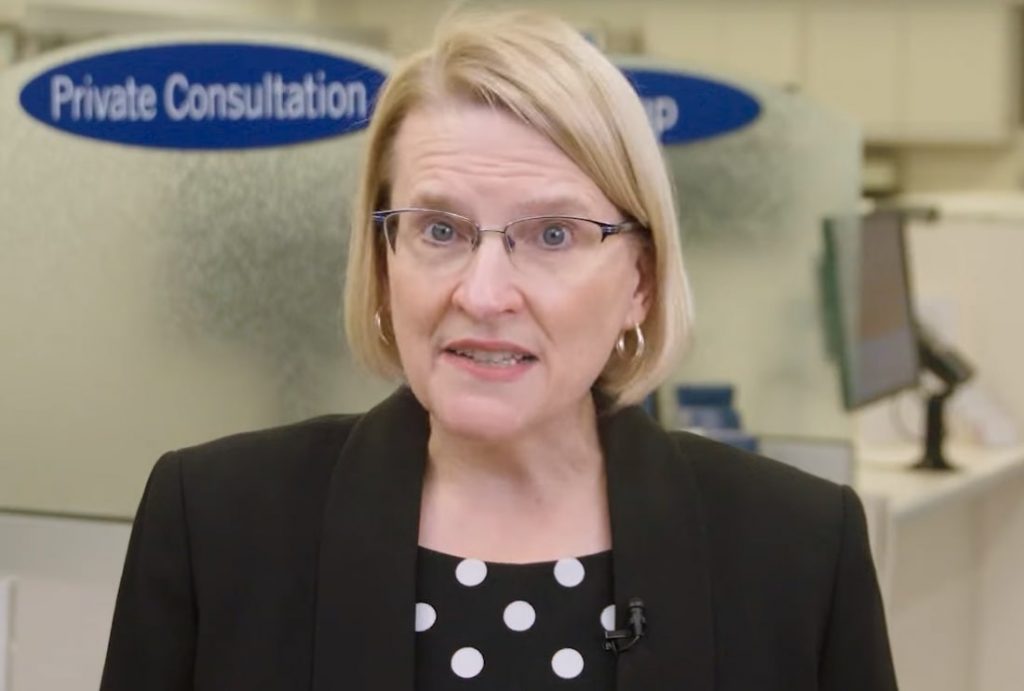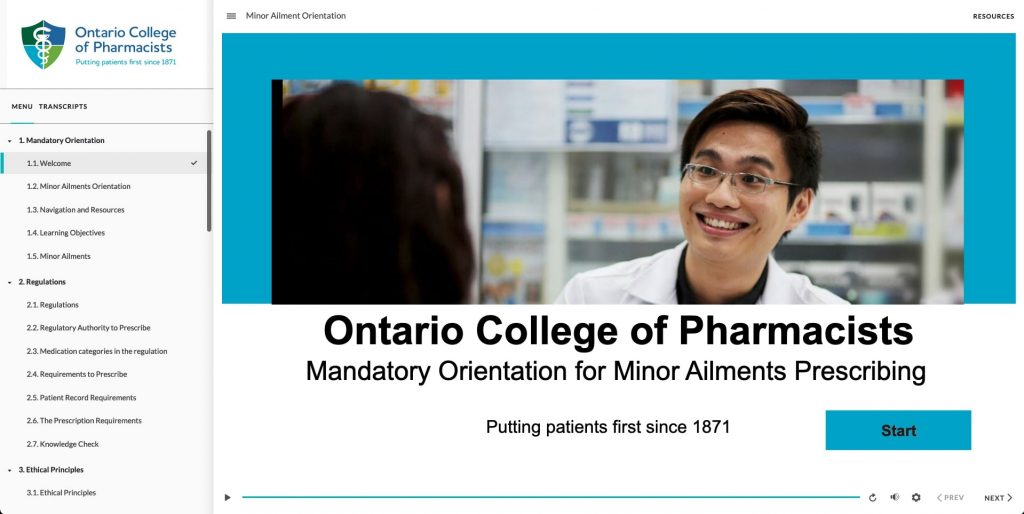WELLINGTON COUNTY – People have long relied on their local pharmacist for medication advice, but a visit to the doctor has traditionally been required for a prescription.
Now, instead of having to turn people away, pharmacists across the province can, as of Jan. 1, prescribe within 10 drug classes for 13 minor ailments such as pink eye and eczema.
Pharmacists have also been able to prescribe for smoking cessation since 2012, and the oral COVID-19 antiviral treatment Paxlovid since Dec. 12.
The Advertiser spoke with four pharmacists in the county about the new prescribing powers, and all are welcoming what they say is a long-overdue advancement in their scope of practice.
“Pharmacists are optimally positioned … we have the clinical training and the expertise to safely treat minor ailments,” said Pharmasave Drayton Pharmacy owner John Walsh.
“We’re learning the pathophysiology, the chemistry, the pharmacology, therapeutics and medicine, and [understanding] minor ailments is just part of what we did and learned in school.”
British Columbia remains the only province in the country where pharmacists do not yet have prescribing authority, but that will change later this year.
In Alberta, pharmacists have been writing prescriptions for the past 15 years, and can prescribe any drug which isn’t a narcotic or controlled substance.
“It’s nice that we’re finally getting our turn,” Walsh said.“I think it’ll improve access to care and have a direct and beneficial impact on [people’s] wellbeing and health.”
He added the province’s decision “makes sense when you look at the current state of our healthcare system.”
The Ontario College of Pharmacists (OCP), the profession’s regulatory and disciplinary body, was approached by the provincial government in 2019 and asked to “submit regulations for several changes to [the] scope of practice” for pharmacists, according to an email from the college in response to questions from the Advertiser.
A college advisory group (the Minor Ailments Advisory Group), along with public and professional focus groups seeking feedback, were assembled.
The Ontario Pharmacists Association (OPA), a pharmacist advocacy group, lobbied politicians and provided input and proposals throughout the process.
The Advertiser emailed specific questions to the Ministry of Health, however spokesperson Bill Campbell did not answer any questions and responded with a generic statement. He also did not respond to a follow-up email from the newspaper.

Ontario Deputy Premier and Minister of Health Sylvia Jones is seen in a Dec. 28 government video announcing prescribing powers for pharmacists. (Screenshot)
Regulations were approved by the province prior to last spring’s provincial election, and public funding fees were negotiated in December.
Pharmacists can bill the Ontario Health Insurance Plan $19 for an in-person consultation and $15 if done by phone or video call.
The list of minor ailments pharmacists can prescribe for was described in a phone call by OPA CEO Justin Bates as a “cautious approach.”
It includes:
- allergy symptoms;
- oral thrush;
- pink eye;
- dermatitises such as eczema;
- menstrual pain;
- gastroesophageal reflux disease;
- hemorrhoids;
- cold sores;
- impetigo skin infection;
- insect bites and hives;
- post-exposure prophylaxis to prevent lyme disease after a tick bite;
- muscle pain; and
- uncomplicated urinary tract infections.
“It was felt that these [ailments] were the most prevalent and would have the highest demand, and the ones that have the strongest evidence behind them with clinical guidelines in place,” Bates explained, saying the list “is a good starting point.”
“It will help broaden access, it will help ease the burden on emergency departments, as well as address the gap of those that don’t have family physicians,” he said.
Pharmasave Mount Forest Pharmacy owner Ravi Halani welcomes the new prescribing power, saying those without access to family doctors may no longer need a day off to wait in an emergency department for a simple prescription, especially in a rural area without easy access to a doctor.
From the list of ailments, Halani said he most often sees people with acid reflux, hemorrhoids and urinary tract infections, but he feels the list is too conservative.
“We can do much more,” he said. “As a pharmacist, I want to help out my patients and the community as much as I can.”
Prescribing remains optional — not all pharmacists will provide the service, and not all area pharmacies are ready to offer it.
Implementation details were only recently released, and the OCP requires pharmacists to complete a one-hour online orientation module “to ensure pharmacists fully understand their ethical, legal, and professional obligations when prescribing for minor ailments.”
Logistical challenges related to staffing, software or ongoing education may also delay the rollout.

Screenshot of a one-hour, online orientation module from the Ontario College of Pharmacists that pharmacists need to complete before prescribing for minor ailments.
It’s anticipated the majority of pharmacies will participate, however Bates says it’s unknown what demand will be like, and the OCP told the Advertiser it will not be monitoring individual pharmacists’ participation.
Peter Meleka at Erin Pharmacy was ready to write prescriptions as soon as the change came into effect.
“It’s more work, but it’s very important and beneficial for patients to have access to prescription medication without a doctor’s authorization,” Meleka said.
He noted doctor access isn’t easy for many and appointment times can be restrictive.
Meleka sees people with the listed ailments “every day” and said “now, it’s different, because we’ll be able to help.”
He believes the change should have been made sooner, and he’s confident more drugs and ailments will be added to the list in the future.
The OPA has already discussed extending the list, but the province hasn’t committed to anything, according to Bates.
Some physicians have criticized granting pharmacists prescribing powers, Bates said, calling it “the elephant in the room.”
Both the Ontario Medical Association and the Ontario College of Family Physicians (OCFP) wrote letters critical of the proposal, with the OCFP noting over-counter treatments are currently available for some ailments, such as allergy symptoms, without a prescription.
“I think the government was sensitive to that,” Bates said, suggesting the criticism caused the province to take “baby steps” with the ailment list.
“There’s still some turf protection out there, I think,” Bates said, adding much of the criticism has been “uninformed.”
“Pharmacists have extensive education and skill sets, they know how to do this,” he asserted.
The OCP’s mandate is to “serve and protect the public” and provides an avenue for the public to file complaints and reports.
Pharmacists have also been required to report medication errors through the Pharmapod Ltd. medication error reporting system since 2018, following the 2016 death of eight-year-old Andrew Sheldrick.
According to a coroner’s report, the boy died from an overdose of the muscle relaxant baclofen when it was allegedly provided incorrectly by a Mississauga pharmacy instead of tryptophan.
Keeping the public health care system sustainable requires all practitioners to practise within their full scope and potential, Bates said.
“It needs to be done in a team-based environment too, so it shouldn’t be, and nor is this, taking from one group and giving to another,” he said.
“It’s about creating capacity and making sure it’s the right person, at the right time, at the right place, delivering the care.”
Fergus Pharmacy and Compounding Centre owner Deep Shah believes pharmacists are being under-utilized in the province and said the welcome development is “never too late.”
“It allows us to use more of our knowledge,” he said.
At least four prescriptions for ailments such as allergies and pink eye have been written at the Fergus pharmacy as of Jan. 2, according to Shah.
He said the list provides remedies to ailments commonly seen by pharmacists and he agrees with the cautious approach, calling it “a good start.”
Shah hopes to eventually see the merit of the minor ailments program evaluated to determine whether pharmacists are truly benefitting the system.
“Are pharmacists doing a good job, are they really benefitting our healthcare system, are they really cutting down the wait times?”




